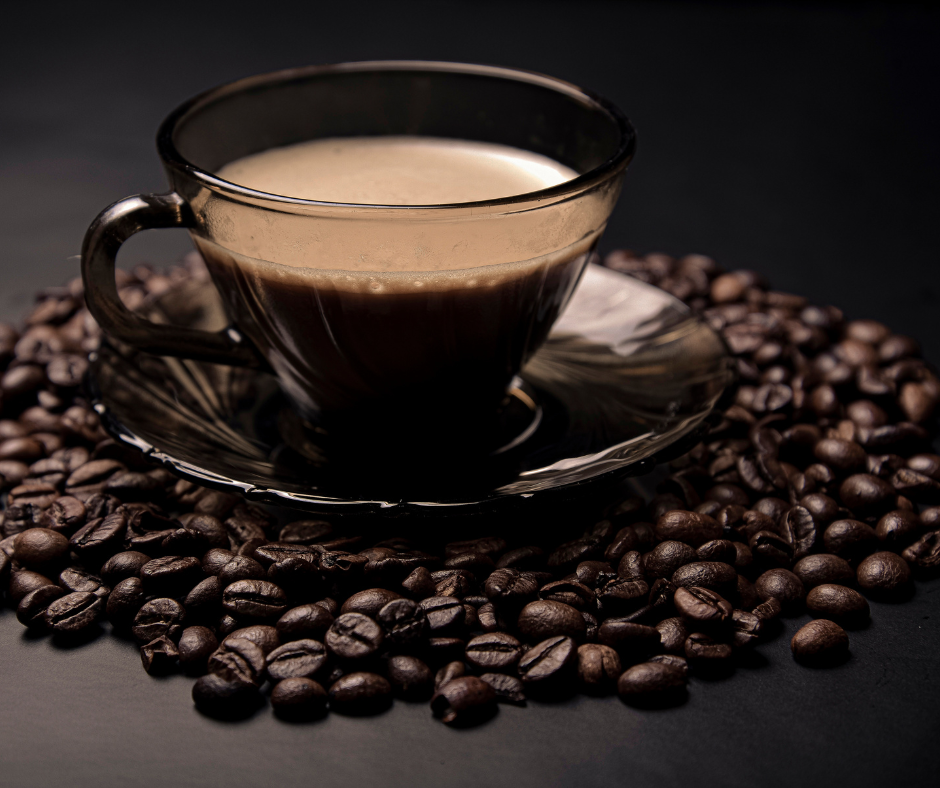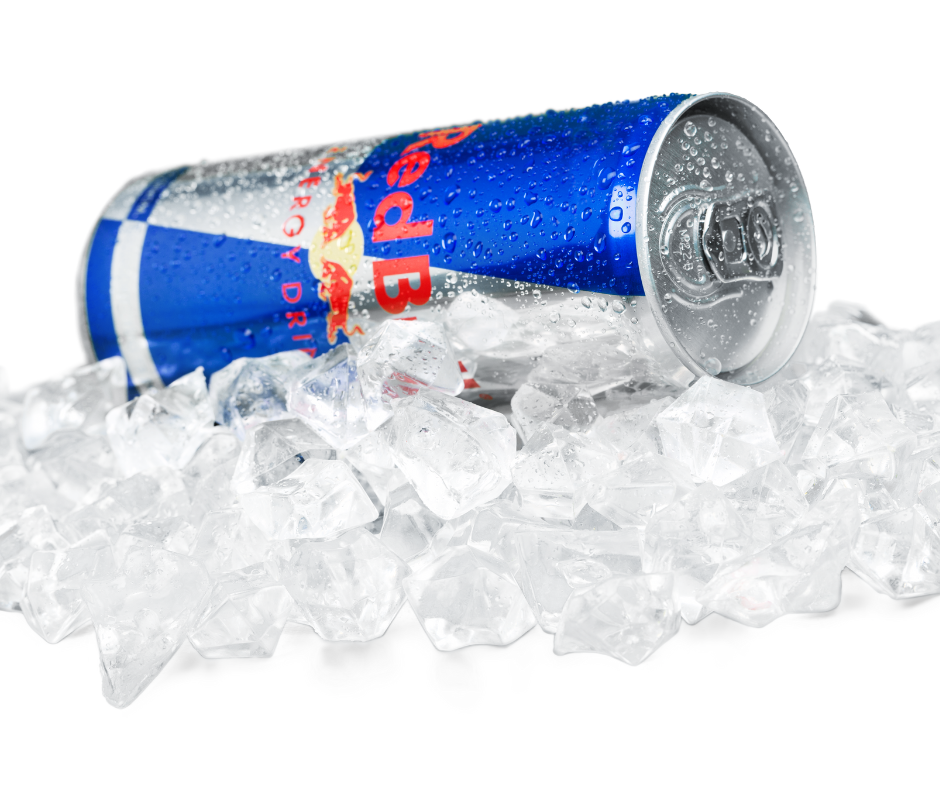Coffee typically contains between 80 to 100 mg of caffeine per cup, whereas a Red Bull has about 80 mg of caffeine per 8.4 oz can. These two popular beverages are often compared for their energy-boosting effects.
Choosing the right pick-me-up can make or break your day. Coffee, a time-honored classic, offers not just caffeine but also a cherished ritual and its unique rich flavor profile. Red Bull, on the other hand, doesn’t just bank on caffeine; it combines it with taurine and B-group vitamins, which many believe can enhance the energy effect.
Whether it’s a warm cup before work or a cold can on the go, consumers weigh flavor, tradition, and the nature of their energy needs. Let’s delve into the specifics of coffee and Red Bull, uncovering which might serve your purposes best.
Caffeine Content Faceoff: Coffee Vs Red Bull
Understanding the caffeine content in Coffee and Red Bull requires a closer look. Both drinks contain the stimulant caffeine. Yet, their chemical compositions vary slightly due to different ingredients and preparation methods.
Typically, a cup of coffee offers a higher caffeine dose than Red Bull. The exact amount can change based on the coffee type and brewing technique. A standard 8 oz cup of coffee contains approximately 95 mg of caffeine.
On the other hand, Red Bull comes in a smaller serving size with a predefined caffeine level. A single 8.4 oz can of Red Bull delivers about 80 mg of caffeine, consistently in every serving.
For those keeping track of their caffeine intake, knowing the distinctions between these popular beverages is vital. Each serving size and corresponding caffeine content are pivotal to consider.
| Drink | Serving Size | Caffeine Content |
|---|---|---|
| Coffee | 8 oz | 95 mg |
| Red Bull | 8.4 oz | 80 mg |

The Kick-in Time: Absorption And Effects
The caffeine in coffee often acts within 5-30 minutes. You feel more awake and alert. The energy boost can last for several hours.
With Red Bull, the caffeine hits faster, sometimes in just 10-15 minutes. The sugar and B-vitamins also help. Yet, this energy spike may fade faster.
Energy levels vary from person to person. It depends on your body and how much you drink.
Health Impact And Safety
Consuming coffee or Red Bull affects health differently over time. Both contain caffeine, which may lead to dependency with frequent use. Studies suggest, prolonged intake of high caffeine levels can lead to heart issues and sleep disorders. Red Bull has other ingredients like tuarine and sugar, which may increase health risks. People should know their own caffeine tolerance and consume accordingly.
It’s essential to keep caffeine intake within safe limits. Health experts say adults should not have more than 400mg of caffeine daily. That is about 4 cups of coffee. A single can of Red Bull contains about 80mg of caffeine. It is wise to consume these beverages in moderation to prevent potential health risks. Always ensure to balance caffeine intake with adequate water and other caffeine-free fluids.

Nutritional Value Comparison
Coffee and Red Bull offer different amounts of calories and sugar.
A typical 8 oz cup of black coffee has just 2 calories and no sugar.
In contrast, an 8.4 oz can of Red Bull contains about 110 calories and 27 grams of sugar.
Both beverages provide varying nutrients.
Coffee includes essential nutrients like B2 (riboflavin), B5 (pantothenic acid), magnesium, and potassium.
Red Bull boasts B-group vitamins, taurine, and glucuronolactone, known to support energy production and mental performance.
| Drink | Calories | Sugar | Vitamins | Amino Acids |
|---|---|---|---|---|
| Coffee (8 oz) | 2 | 0g | B2, B5, magnesium, potassium | None |
| Red Bull (8.4 oz) | 110 | 27g | B-group vitamins | Taurine |
Lifestyle And Convenience Factors
Coffee and Red Bull both serve up caffeine. But each fits into daily life differently. Coffee is timeless. Many enjoy its warmth in the morning. It’s often shared during meetings or breaks.
Red Bull is a quick energy fix. Perfect for those on the go. It’s known for sporting events and late-night study sessions. Easily carried and consumed anywhere.
Think of your daily routine. Do you savor a slow morning? Or are you always rushing? Coffee might suit slow paces. Red Bull syncs with fast lives.
The Taste Experience
Coffee offers a rich and complex taste experience. A sip might reveal hints of chocolate, nuts, or even fruit. The roast level changes the flavor too. Light roasts can be more acidic, while dark roasts are fuller and bolder. Red Bull, on the other hand, is known for its sweet, syrupy taste with a tart, citrus edge.
Coffee drinking is a cherished ritual in many cultures. Friends meet over coffee to chat. In some places, preparing coffee is an art. Red Bull is a newer trend. It’s tied to sports, study sessions, and late work nights.
Frequently Asked Questions For Coffee Vs Red Bull Caffeine
Does Coffee Have More Caffeine Than Red Bull?
An 8-ounce cup of coffee typically contains more caffeine than an 8. 4-ounce can of Red Bull. Coffee averages about 95 mg of caffeine, while Red Bull has about 80 mg.
How Many Coffees Is A Red Bull Equivalent To?
One 8. 4 oz can of Red Bull contains about 80 mg of caffeine, which is roughly equivalent to a single 8 oz cup of coffee.
Does Red Bull Keep You Awake More Than Coffee?
Red Bull can keep you awake similarly to coffee, mainly due to its caffeine content. Individual responses may vary.
Is Red Bull As Effective As Coffee?
Red Bull and coffee differ in effectiveness due to their ingredients. Red Bull contains caffeine, taurine, and B-vitamins, which may enhance energy faster but for a shorter duration. Coffee provides a gradual caffeine release, offering sustained alertness over time. Individual reactions can vary.
Conclusion
Choosing between coffee and Red Bull depends on your needs. Coffee offers a rich flavor and antioxidants, with natural caffeine. Red Bull has a steady energy blend, plus B-vitamins. Consider your taste, health goals, and energy requirements. Whichever you pick, enjoy it responsibly for that much-needed boost.

